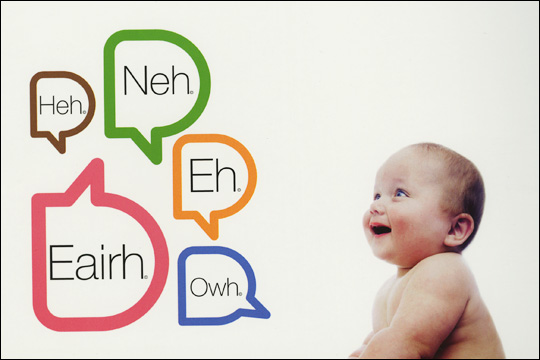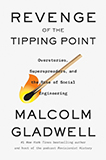I read a fascinating article titled Science Question from a Toddler: Life Before Birth last week. I highly recommend the full article for any new/expectant mothers; heck, it’s a good read in general even if you’re not into this stuff!
The reason I bring up this article is due to a particular passage:
Newborns prefer their mother’s voice over anyone else’s (even dad’s). They prefer hearing phrases from books they were read while in the womb, compared to new stories. They’re even already favoring one language over another.
“Babies prefer the sound of their mother’s native language to others,” Moon said. “Interestingly, they can distinguish between languages in the same rhythmic class, like Spanish versus English. But they can’t tell the difference between similar sounding languages, like English and Dutch.”
I already know that my little one can hear me from inside the womb, but I never knew how much of an impact outside noises are already having on my baby! And the part about being able to distinguish between languages? Incredible!

I immediately forwarded the article to J, who emailed back, “Dammit, I’m going to start talking to your tummy in Chinese now!”
…and I must confess that ever since reading this piece, I have been finding myself talking more often in Korean.
While I am not 100% fluent in Korean, I am still able to talk, read, and write (and type!) comfortably. So in this sense, I consider myself bilingual.
J, meanwhile, is quadlingual — English, Cantonese, Mandarin, and Japanese. (I know some may consider Cantonese and Mandarin to be one language as they are different dialects of the Chinese language, but trust me when I say they’re as different as night and day!)
Many people have asked us over the years what language(s) we will be teaching our children. And our response to them? All of them! Well, at least the ones that we know.
That means that our children will be pentalingual.
I can already picture them resenting us.

We know our baby will be no Einstein, but we can certainly try.
I once read that the Chinese language requires the use of both hemispheres of the brain, while most other languages require only the left. The reason for this is the Chinese use of tones (for example, the Chinese word ma can mean either “mother” or “horse” depending on the tone).
As a result, people whose native language is Chinese — or any other language that requires the use of tones — have less difficulty learning other languages. On the other hand, someone whose native language is not tonal-based will have great difficulty learning languages such as Chinese because they are quite literally forcing their brains to re-wire their language processing centers.
Or, in cases like me, some people just have difficulty learning new languages PERIOD. (I took two semesters of Mandarin in college and I only remember a handful of words.)
After reading this study some years ago, I knew that if I married J I would like to teach my kids Chinese first so that they would have less difficulty learning other languages.
However, J is at work all day while I will be a SAHM (stay at home mom).
Maybe I can (attempt to) learn Chinese alongside my kids? Or is that an impossible task?
Should I just start them on Korean instead?






 I like books, gadgets, spicy food, and art. I dislike shopping, hot weather, and the laws of entropy. Although I am a self-proclaimed computer nerd, I still have a love for handbags and makeup... and I am always teetering on high heels. To learn more about me, visit the
I like books, gadgets, spicy food, and art. I dislike shopping, hot weather, and the laws of entropy. Although I am a self-proclaimed computer nerd, I still have a love for handbags and makeup... and I am always teetering on high heels. To learn more about me, visit the 


Hee! Languages that are really affected by tone and pronunciation freak me out a little. My husband and I were talking about this the other day and apparently, in Finnish, if you bone up the pronunciation of "I will MEET you there later" it can sound to a Finnish person like you are saying "I will KILL you there later." Scary stuff!
@girlonthepark — tonal-based languages freak me out too, and that’s a big reason I was never good at Chinese (on top of the fact that I’m helplessly right-brained). I know that in Chinese if you say the number 4 in a slightly different way it can mean "death" and that’s the reason the number 4 is considered bad luck.
Studies also show that a quiet pregnancy (like your surroundings) results in a quiet baby. So, don’t go clubbing too often or even argue loudly.
Start them on both. :0) What would it hurt?
Start them on both. :0) What would it hurt?
@Jina — I just pictured a 9-month pregnant version of myself (trying to) party it up at a super-crowded club. Too funny!
That is really cool! If I remember any french by the time I’m ready to have kids, I would most definitely want to give them a headstart. 🙂
expose the baby to all the languages. The ability to distinguish between the tonalities decrease drastically after age 1. as much as i’d like my household to be bilingual, it’s hard because we’re not crazy fluent. i’ve resorted to having my friends send me mandarin children’s dvds from asia.
when my hubby was young, his parents spoke to him only in chinese so that he would learn the language. when he got a little bit older, he almost was forced to enroll in ESL class by his school because he had difficulty speaking english at the time, even tho he was born and raised in the US. how funny is that?
I’ve been reading your blog like crazy lol, I finished one post and see a related post below, so I’m all over the place. I love your blog!!!
It’s awesome Claire can converse in Cantonese and Korean! My husband is Vietnamese and I’m Cantonese, I hope our daughter will master both languages too. My husband has been speaking to her in Vietnamese since birth (she is 5 months next week), mainly because he’s afraid she would have a hard time learning it later on as all his family is in Vietnam. I, on the other hand did not speak to her in Cantonese on the get go. Firstly I sound and feel kind of silly when I speak to her in Chinese, secondly my family is here, so I’m not too worried about it. I did however started to speak to her in Cantonese more recently. After your post about starting them early and linking the languages with sign language, I think is a great idea. I also worry that I can’t understand Vietnamese and that’ll make me feel left out ane vice versa for my husband. I already feel left out when we stayed in Vietnam for three weeks and I absolutely didn’t understand his family. How do you deal with the in laws with the language barrier? My husband got a bit more leverage as my parents know some Vietnamese, but they’re not confident when speaking it, so not much conversation going on, and it frustrates my husband that he tries to converse with my parents but they keep it short. I always tell him hey at least they understand you. I basically have to use sign language and body language with his parents.